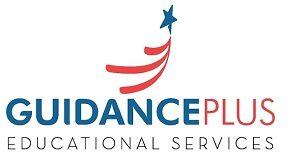
In the rapidly evolving landscape of technology, Artificial Intelligence (AI) stands as both a beacon of innovation and a harbinger of concern. While its potential for revolutionizing industries and enhancing efficiency is undeniable, the unchecked proliferation of AI-powered monitoring tools raises significant ethical and practical questions. As we get into the duality of AI, it becomes apparent that while it holds promise, its implementation requires careful consideration and ethical scrutiny.
What is AI Monitoring?
AI-powered monitoring software, colloquially known as bossware, has seen a notable surge in adoption in recent years. Pitched as a solution to boost productivity, these tools often come at the cost of employee morale and privacy. With remote work becoming increasingly prevalent, employers are turning to AI to monitor their workforce, leading to a contentious debate regarding the boundaries of surveillance.
According to a survey conducted by Statista in 2024, 67% of employers admitted to using some form of employee-monitoring software, a significant increase from previous years (source). This uptick in surveillance technology reflects a broader trend toward automation and digitization in the workplace, with AI serving as the driving force behind this paradigm shift.
The Ethical Implications of AI Surveillance
While proponents argue that AI monitoring tools enhance accountability and efficiency, critics raise concerns about privacy infringement and algorithmic bias. The reliance on AI, still in its nascent stages, introduces the risk of erroneous judgments and unfair outcomes. Instances of AI misinterpreting data and leading to unwarranted disciplinary actions highlight the inherent flaws in these systems.
A prime example of AI’s fallibility lies in the case of the British Post Office scandal, where faulty IT systems led to wrongful accusations and severe consequences for innocent individuals. Despite such glaring mishaps, the prevalence of AI-enabled bossware continues to escalate, perpetuating a culture of surveillance and mistrust in the workplace.
Controlio: A Case Study
One such AI monitoring software, Controlio, has garnered attention for its intrusive surveillance capabilities. Marketed as a tool to track employee productivity, Controlio raises serious concerns regarding employee privacy and autonomy. By capturing screenshots and monitoring keystrokes, Controlio exemplifies the invasive nature of AI-powered monitoring tools, further exacerbating tensions between employers and employees.
Navigating the Nuances of AI
While AI holds immense potential for revolutionizing industries and driving innovation, its implementation must be guided by ethical principles and a commitment to transparency. The unchecked proliferation of AI monitoring tools underscores the need for regulatory oversight and safeguards to protect employee rights.
In a survey conducted by Deloitte in 2024, 82% of respondents expressed concerns about the ethical implications of AI in the workplace, highlighting the growing apprehension towards unchecked automation. As we confront the dual nature of AI, it is imperative to strike a balance between innovation and ethics, ensuring that the benefits of AI are realized without compromising individual rights and freedoms.
Conclusion
The dichotomy of AI encapsulates both promise and peril, as we navigate the complex terrain of technological advancement. While AI monitoring on the rise offers unprecedented insights and efficiencies, its unchecked proliferation raises ethical concerns and challenges notions of privacy and autonomy.
As we stand at the precipice of a digital revolution, it is essential to approach AI with caution and mindfulness, recognizing its potential for both progress and peril. Only through thoughtful regulation and ethical scrutiny can we harness the transformative power of AI while safeguarding the rights and dignity of individuals in the digital age.

 Top Benefits of Enrolling Your 2-Year-Old in a New Jersey Montessori School
Top Benefits of Enrolling Your 2-Year-Old in a New Jersey Montessori School  How to Choose the Right Skills Future Course for Your Career Goals
How to Choose the Right Skills Future Course for Your Career Goals  Empowering Creators How Headsets Enhance Content Creation
Empowering Creators How Headsets Enhance Content Creation  Top 5 Reasons to Study in Ireland!
Top 5 Reasons to Study in Ireland!